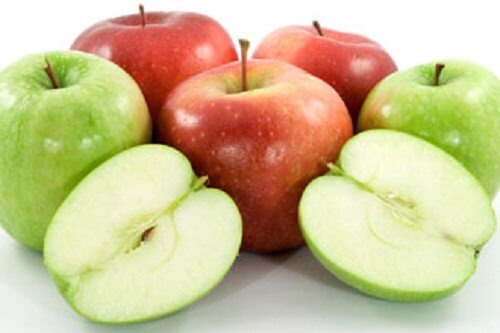10 Natural Laxatives for Constipation


Reviewed and approved by the doctor Maricela Jiménez López
If you suffer from frequent “blockage”, you’ll want to understand the options available to you in natural laxatives for constipation . Your diet should already include foods that contain high concentrations of fiber; foods like yogurt that keep your intestinal flora healthy.
Natural laxatives are foods or herbs that allow you to cleanse your intestines. It’s important to differentiate between the two types of laxatives. One has a much more powerful effect and may lead to certain side-effects.
Types of natural laxatives for constipation
By looking at how they work on the body, we can distinguish natural laxatives into the following categories.
Stimulants
These are called purgatives, which are considered stimulants because they act on the intestinal muscle and have certain components that also act on the colon to stimulate defecation. They also work on your intestinal walls and boost the production of minerals and liquids. Finally, they diminish the intestines’ ability to absorb sodium and chlorine.
Negative side effects are based on the amount of time that stimulants act on the body. Once ingested, they can work for up to eight hours. It is recommended that you take stimulant laxatives just before going to sleep.

Mechanical
These are laxatives full of soluble and insoluble fiber that give volume to your waste, retain water, and hydrate the walls of your intestine. They also help in the most natural way to promote intestinal muscle movement. This will definitely help you go to the bathroom.
Mechanical laxatives are much gentler than stimulants and are recommended as first steps to address constipation. We recommend that you accompany these treatments with probiotics such as natural yogurt.
Take the next step in your health! Read more:
Cleanse Your Body of Toxic Substances
Osmotic
This type of laxative acts by increasing the amount of water in your intestine, thus softening stool. It’s similar to mechanical laxatives, as they contain a lot of minerals and force your body to vacate the bowel. Cherries are an example of osmotic laxatives. The effects are strong and require you to drink large amounts of water and isotonic liquids to rehydrate.

How to choose a laxative
Choosing natural laxatives for constipation will always serve you well. Among the most gentle of laxatives are mechanical ones, which include the following.
Apple juice and olive oil
Mix a half cup of apple juice with a half cup of olive oil. Drink the mixture before going to sleep.
Cherries and honey
In a pot, bring one cup of water to a boil. Add six cherries. Remove from heat, and let steep while covered over night. In the morning strain and add a tablespoon of honey. Keep the cherries to eat during the day.
Aloe vera
Slice an aloe vera leaf. Bing it to a boil in a pot of water. When cooled, seal in a jar and place it in the refrigerator unstrained. You should only consume this twice a week. This laxative is not recommended for pregnant women, women who are nursing, or those who are on anticoagulants.

Grape and linseed juice
Blend grapes until you have a smooth juice – approximately one cup’s worth – and add a tablespoon of linseed in powdered form. Drink in the morning, no more than once a week.
Castor oil
This is an external laxative. Soak a towel or gauze in castor oil and heat over a low flame. Place the heated pad on the small of your back or lumbar region. Cover so that it remains warm longer. Apply once a day. We do not recommend you consume or ingest castor oil.
Foods that act as natural laxatives
In addition to aloe vera and cherries, there are other effective foods that act as laxatives. Before you ingest anything, you should attempt to discover what is causing your digestive issues. Constipation is when a person “goes” less than three times a week, or whose stool is dry and hard.
Digestive problems are natural when you have an unhealthy diet. Lack of exercise, a sedentary lifestyle, dehydration, and overconsumption of fats and refined flours can all cause constipation. If you want a healthy gut, you’ll need to change up your lifestyle a little. Some recommended foods include:
Plantain
This plant originates in India and has lots of fiber which helps you “go”. It can absorb water, add volume to your stool, and stimulate your bowel movement.
Apples
Both red and green apples contain pectin. This substance promotes the healthy movement of the intestines, softens stools (because of their fiber content) and helps you go. Eat an apple a day, or have a small serving after dinner. We recommend eating apples raw or dried along with a serving of cherries.

Bananas
This is another fruit that contains large amounts of fibers (and potassium) and thus makes a great natural laxative. One banana has 12% of your daily recommended fiber intake. And they also contain oligascarides which travel directly to the large intestine and promote digestion and defecation.
Looking for more creative ways to use your bananas? Try:
Banana Face Mask Recipe
Onion
Onions should always be a vegetable of preference. They’re not only tasty, but they hep protect your body from illnesses, pathogens and other conditions. And, onions make a promising natural laxative! When you eat raw vegetables, your body naturally produces gastric acids and it can help boost intestinal flora. The presence of quinine stimulates your liver metabolism, the pancreas, stomach, and finally, the intestines.
Before you turn to other measures, try these natural laxatives for constipation and other intestinal issues.
All cited sources were thoroughly reviewed by our team to ensure their quality, reliability, currency, and validity. The bibliography of this article was considered reliable and of academic or scientific accuracy.
- Alookaran, J, & Tripp, J. (21 de noviembre de 2022). Castor Oil. StatPearls. Consultado el 7 de noviembre de 2023. https://www.ncbi.nlm.nih.gov/books/NBK551626/
- Bayer, S. B., Heenan, P., Frampton, C., Wall, C. L., Drummond, L. N., Roy, N. C., & Gearry, R. B. (2022). Two Gold Kiwifruit Daily for Effective Treatment of Constipation in Adults-A Randomized Clinical Trial. Nutrients, 14(19), 1-13. https://www.ncbi.nlm.nih.gov/pmc/articles/PMC9572406/
- Brunning, A. (2015). The chemistry of plums & prunes: Constipation & chewing gum. Compound Interest. https://www.compoundchem.com/2015/09/01/plums-prunes/
- Agencia Española de Medicamentos y Productos Sanitarios. (s.f.). Ficha técnica aceite de ricino orrava 1g/ml líquido oral. Consultado el 3 de noviembre de 2023. https://cima.aemps.es/cima/dochtml/ft/34912/FichaTecnica_34912.html#
- European Medicines Agency. (2021). Sennae folium. Consultado el 3 de noviembre de 2023. https://www.ema.europa.eu/en/medicines/herbal/sennae-folium
- Gao, R., Tao, Y., Zhou, C., Li, J., Wang, X., Chen, L., Li, F., & Guo, L. (2019). Exercise therapy in patients with constipation: a systematic review and meta-analysis of randomized controlled trials. Scandinavian journal of gastroenterology, 54(2), 169-177. https://pubmed.ncbi.nlm.nih.gov/30843436/
- Gao, C. C., Li, G. W., Wang, T. T., Gao, L., Wang, F. F., Shang, H. W., .& Xu, J. D. (2021). Rhubarb extract relieves constipation by stimulating mucus production in the colon and altering the intestinal flora. Biomedicine & Pharmacotherapy, 138, 111479. https://www.sciencedirect.com/science/article/pii/S075333222100264X
- Gearry, R., Fukudo, S., Barbara, G., Kuhn-Sherlock, B., Ansell, J., Blatchford, P., Eady, S., Wallace, A., Butts, C., Cremon, C., Barbaro, M. R., Pagano, I., Okawa, Y., Muratubaki, T., Okamoto, T., Fuda, M., Endo, Y., Kano, M., Kanazawa, M., Nakaya, N., … Drummond, L. (2023). Consumption of 2 Green Kiwifruits Daily Improves Constipation and Abdominal Comfort-Results of an International Multicenter Randomized Controlled Trial. The American journal of gastroenterology, 118(6), 1058-1068. https://pubmed.ncbi.nlm.nih.gov/36537785/
- Hong, S. W., Chun, J., Park, S., Lee, H. J., Im, J. P., & Kim, J. S. (2018). Aloe vera Is Effective and Safe in Short-term Treatment of Irritable Bowel Syndrome: A Systematic Review and Meta-analysis. Journal of neurogastroenterology and motility, 24(4), 528-535. https://www.ncbi.nlm.nih.gov/pmc/articles/PMC6175553/
- Hrefna Palsdottir, M. S. (2019). Do bananas cause or relieve constipation? Healthline.Consultado el 3 de noviembre de 2023. https://www.healthline.com/nutrition/bananas-and-constipation
- Huo, J., Wu, L., Lv, J., Cao, H., & Gao, Q. (2022). Effect of fruit intake on functional constipation: A systematic review and meta-analysis of randomized and crossover studies. Frontiers in nutrition, 9, 1018502. https://www.ncbi.nlm.nih.gov/pmc/articles/PMC9583540/
- Jalanka, J., Major, G., Murray, K., Singh, G., Nowak, A., Kurtz, C., Silos-Santiago, I., Johnston, J. M., de Vos, W. M., & Spiller, R. (2019). The Effect of Psyllium Husk on Intestinal Microbiota in Constipated Patients and Healthy Controls. International journal of molecular sciences, 20(2), 1-12. https://www.ncbi.nlm.nih.gov/pmc/articles/PMC6358997/
- Koyama, T., Nagata, N., Nishiura, K., Miura, N., Kawai, T., & Yamamoto, H. (2022). Prune juice containing sorbitol, pectin, and polyphenol ameliorates subjective complaints and hard feces while normalizing stool in chronic constipation: A randomized placebo-controlled trial. The American Journal of Gastroenterology, 117(10), 1714-1717. https://journals.lww.com/ajg/fulltext/2022/10000/prune_juice_containing_sorbitol,_pectin,_and.32.aspx
- National Institute of Diabetes and Digestive and Kidney Diseases. (1 de abril de 2020). Senna. Consultado el 7 de noviembre de 2023. https://www.ncbi.nlm.nih.gov/books/NBK547922/
- Mawa, S., Husain, K., & Jantan, I. (2013). Ficus carica L. (Moraceae): Phytochemistry, Traditional Uses and Biological Activities. Evidence-based complementary and alternative medicine : eCAM, 2013, 974256.https://pubmed.ncbi.nlm.nih.gov/24159359/
- Pourmasoumi, M., Ghiasvand, R., Darvishi, L., Hadi, A., Bahreini, N., & Keshavarzpour, Z. (2019). Comparison and Assessment of Flixweed and Fig Effects on Irritable Bowel Syndrome with Predominant Constipation: A Single-Blind Randomized Clinical Trial. Explore, 15(3), 198-205. https://pubmed.ncbi.nlm.nih.gov/30318190/
- Ramos, C. I., Andrade de Lima, A. F., Grilli, D. G., & Cuppari, L. (2015). The short-term effects of olive oil and flaxseed oil for the treatment of constipation in hemodialysis patients. Journal of renal nutrition : the official journal of the Council on Renal Nutrition of the National Kidney Foundation, 25(1), 50-56. https://pubmed.ncbi.nlm.nih.gov/25238699/
- Rhubarb. (2021). In Drugs and Lactation Database (LactMed®). National Institute of Child Health and Human Development. https://pubmed.ncbi.nlm.nih.gov/30000922/
- oputri, N., & Panjaitan, M. (2022). Effectiveness of consumption of Carica Papaya L, as a natural remedy to treat constipation. 8ISC Abstract Proceedings, 14-14. https://ejournal.unklab.ac.id/index.php/8ISCABS/article/view/709
- Sun, J., Bai, H., Ma, J., Zhang, R., Xie, H., Zhang, Y., Guo, M., & Yao, J. (2020). Effects of flaxseed supplementation on functional constipation and quality of life in a Chinese population: A randomized trial. Asia Pacific journal of clinical nutrition, 29(1), 61-67. https://pubmed.ncbi.nlm.nih.gov/32229443/
- Turan, İ., Dedeli, Ö., Bor, S., & İlter, T. (2014). Effects of a kefir supplement on symptoms, colonic transit, and bowel satisfaction score in patients with chronic constipation: a pilot study. The Turkish journal of gastroenterology : the official journal of Turkish Society of Gastroenterology, 25(6), 650-656. https://pubmed.ncbi.nlm.nih.gov/25599776/
- Ullah, R., Nadeem, M., Khalique, A., Imran, M., Mehmood, S., Javid, A., & Hussain, J. (2016). Nutritional and therapeutic perspectives of Chia (Salvia hispanica L.): a review. Journal of Food Science and Technology, 53(4), 1750-1758. https://link.springer.com/article/10.1007/s13197-015-1967-0
- U.S. Department of Agriculture [USDA]. (30 de octubre de 2020). Flax seeds. FoodData Central. Consultado el 7 de noviembre de 2023. https://fdc.nal.usda.gov/fdc-app.html#/food-details/1100610/nutrients
- Wang, X., & Yin, J. (2015). Complementary and alternative therapies for chronic constipation. Evidence-Based Complementary and Alternative Medicine, 2015, 1-12. https://www.hindawi.com/journals/ecam/2015/396396/
- Wnyurology.com. (s.f.). Ruibarbo. Consultado el 3 de noviembre de 2023. https://www.wnyurology.com/content.aspx?chunkiid=175688
This text is provided for informational purposes only and does not replace consultation with a professional. If in doubt, consult your specialist.








